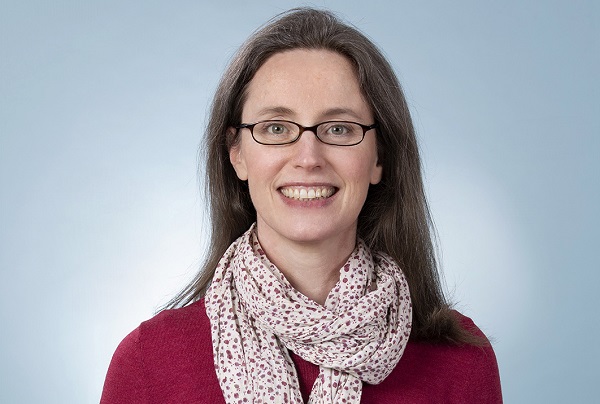 Molly McGuire, Left candidate in Differdange;
Credit: Déi Lénk
Molly McGuire, Left candidate in Differdange;
Credit: Déi Lénk
In the run-up to Luxembourg's municipal (local) elections on Sunday 11 June 2023, Chronicle.lu spoke with various candidates with links to the international community to learn why they got involved in local politics and their priority issues.
All non-Luxembourgish residents over the age of eighteen could register to vote in this year's local elections. By the deadline of 17 April 2023, over 50,000 foreign residents had registered to vote (about 20% of those eligible). Out of 3,847 candidates, 379 are non-Luxembourgers (Luxembourg dual nationals are counted as Luxembourgers in this context).
The candidates interviewed in this series of articles are mainly non-Luxembourgers or dual nationals with an international background. Chronicle.lu thus had the opportunity to speak with Molly McGuire, who is standing as a candidate for the Left (Déi Lénk) in Differdange.
Originally from Washington, DC in the United States, Molly McGuire moved with her family to Luxembourg in 2017 for work. She has been involved in the Left since spring 2023.
Chronicle.lu: Why did you decide to stand in the 2023 local elections? Is this your first time running as a candidate?
Molly McGuire: This is my first time running as a candidate in a local election and my first time getting involved in politics at any level. I decided to run on the déi Lénk list because their platform echoes the kind of change I think is desperately needed in Differdange. The diverse population of our city is not reflected in the makeup of the municipal council and there are many residents who feel they have no voice in local decisions. We are working toward a truly representative local government.
Chronicle.lu: What are your party’s major issues in your constituency?
Molly McGuire: Our three most pressing issues are:
1) the need for more affordable housing: the cost of housing in Luxembourg is out of step with the financial reality of many who live and work here. The commune needs to step up to the plate as an active player in tackling the housing crisis by taking a multi-pronged approach to creating more available housing at more affordable prices. [...] We should actively pursue alternative forms of housing [...];
2) the social-ecological transition: déi Lénk believes that the dual transitions to a more socially-equitable society and a more ecologically sustainable future are intertwined. We must take immediate and decisive action to address the impact of human behaviour on climate change with the goal of carbon neutrality. At the same time, we must increase social equity and opportunity. We believe in the democratisation of transportation, improving access and quality of life for all through better alternative transportation options [...];
3) democracy in local government: the municipal government must be accountable to citizens and must operate on the principle of transparency. Participating in social decisions for all citizens living in the municipality is the fundamental condition for the proper functioning of a community. We believe this means giving concrete form to democratic participation and implementing it at all levels within the municipality, working toward increased citizen participation.
Chronicle.lu: What specific issues are you backing/promoting?
Molly McGuire: I am particularly interested in improving safety and infrastructure for all cyclists, especially children. My son was hit by a car while riding his bike to school two years ago, breaking the car's side window with his head. Thanks to his helmet and a good amount of luck, he was not seriously injured. I wrote a letter to the aldermen on the municipal council in Differdange following this incident and really hoped that they would take me up on my offer to get involved as a citizen in improving bike safety, but I never heard back. This issue is close to home and very important to me. We need to bring the commune into the modern age in terms of bike safety and infrastructure! This also has implications for reducing the commune's carbon emissions - if people don't feel safe with alternate forms of transportation, then they won't get out of their cars.
Chronicle.lu: Have you encountered any particular challenges as a non-Luxembourger/dual national, for example regarding language?
Molly McGuire: I would like to see Luxembourgish language classes more available at the communal level. A few years ago, I started learning Luxembourgish through the language classes offered by the commune. Unfortunately, the next two years in a row, I tried to sign up for the subsequent class, but it was full within 24 hours of opening the registration site. I think there is a demand for Luxembourgish classes at the communal level that is not currently being met.
Chronicle.lu: Please tell us about your involvement in the international community in Luxembourg over the years.
Molly McGuire: Our children are at the EIDE [international school] in Differdange and we have been impressed by the diversity of nationality represented at the school. In my daughter's class last year, the number of native tongues spoken by individual children [...] was only a few less than the total number of children in the class! This speaks to the richness of culture we have represented here in Differdange, and I think we should work to promote this richness as a selling point of the city.








